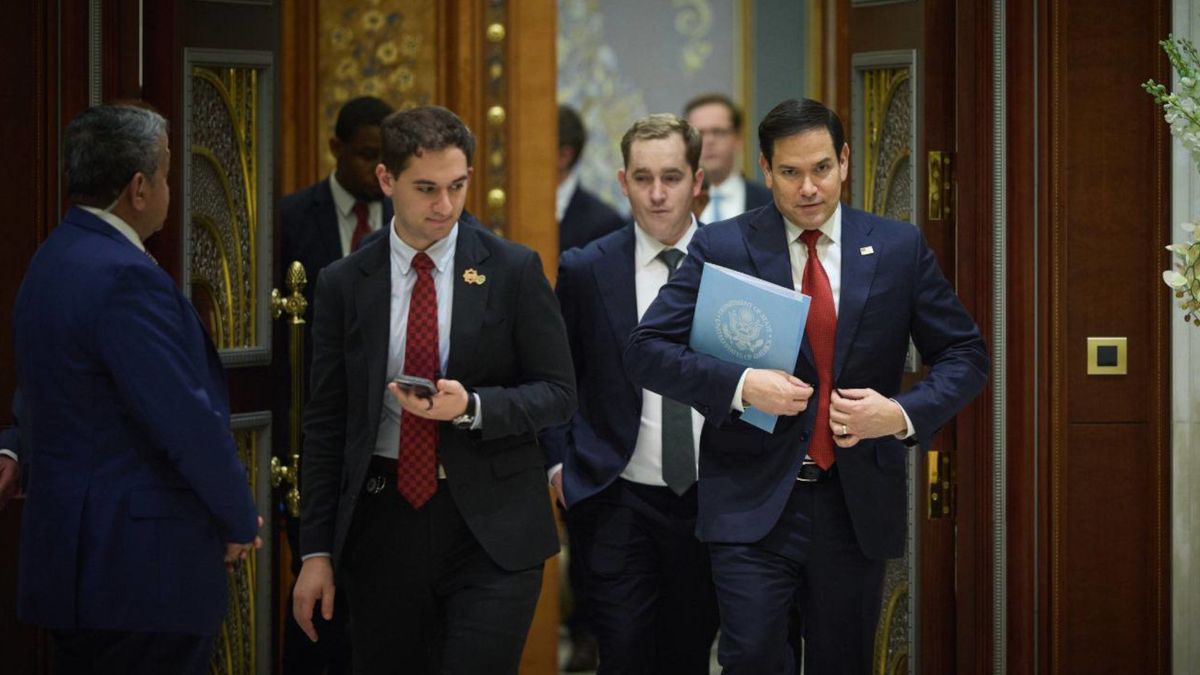U.S. aid resumes as Ukraine agrees to cease-fire

```html
Ukraine Ceasefire: A Deal Forged in Uncertainty
A Pause in Hostilities, A Resumption of Aid
The Trump administration has restarted intelligence sharing and military aid to Ukraine following a tense period of suspended support. This resumption comes on the heels of Ukraine's pressured agreement to a potential 30-day ceasefire with Russia, brokered during negotiations in Saudi Arabia.
As part of the agreement, the U.S. pledged humanitarian relief and Ukraine tentatively agreed to develop its mineral resources, with resulting revenue directed towards a reconstruction fund partly owned by the U.S. Significantly, territorial concessions to Russia, a move previously deemed unthinkable by Ukrainian President Volodymyr Zelensky, are now under consideration. Secretary of State Marco Rubio framed this concession as unavoidable, stating, “That’s the only way this is going to end. There’s no military solution.” The onus now rests on Russia, absent from the negotiations, to accept the proposed ceasefire.
The Cost of Silence and the Rise of Retaliation
Ukraine asserts that the week-long pause in U.S. intelligence sharing had devastating consequences, resulting in "hundreds of dead Ukrainians" due to the country's weakened defenses against Russian missile attacks. President Trump, however, downplayed the impact, suggesting that Russian President Vladimir Putin was merely "doing what anybody else would do." In a bold act of defiance, Ukraine launched its largest drone attack on Moscow since the conflict began three years ago, resulting in three fatalities.
Meanwhile, an unprecedented emergency summit convened in Paris, bringing together over 30 military chiefs from NATO, EU countries, Japan, and Australia. Conspicuously absent was the United States. The summit focused on addressing the Trump administration's increasing rapprochement with Moscow. Proposals included stationing European troops at critical infrastructure sites within Ukraine, with France and the U.K. offering their forces. One European diplomat highlighted the summit's message: “The political message is we can do it together, and without the United States, but it’s clear there are things we can’t do.”
A Deal Too Good to Refuse?
The Wall Street Journal characterized the ceasefire agreement as "an offer Kyiv can’t refuse," citing Ukraine's weakening position without U.S. support. However, even if Russia accepts the terms, the publication cautioned that "this will not mean peace in our time," referencing Putin's history of breaking truces since the 2014 Crimean invasion. The concern remains that any pause in fighting would merely provide Russia with an opportunity to "rearm."
The Dallas Morning News expressed hope that "Ukraine will not be required to give up too much and Russia too little," criticizing Trump for demanding concessions from Zelensky while seemingly requiring nothing from Putin. The paper argued that a lasting peace hinges on continued U.S. backing of Ukraine with weapons and intelligence, as well as full support for the deployment of European peacekeeping troops as a “red line against Russian aggression.”
Analyzing Trump's Gambit
Matthew Chance, writing for CNN.com, suggested that Trump's ceasefire proposal "just called Putin’s bluff," highlighting the recent pro-Kremlin shift in American policy. Chance speculated that Trump, after significant concessions and praise towards Putin, might now "expect Putin to play ball—or risk his wrath."
Conversely, Trudy Rubin of The Philadelphia Inquirer cautioned against misinterpreting the ceasefire offer as genuine progress towards peace. Rubin argued that Trump's actions, such as halting cyber operations against Russia and discussing the reopening of consulates, have emboldened Putin while forcing Ukraine into a "suicide deal." Rubin also raised concerns about reports of Trump administration overtures to Zelensky's political rivals, hinting at a potential attempt to oust the Ukrainian president.
Marc Champion, writing for Bloomberg, offered a more ambiguous interpretation, suggesting that ousting Zelensky might be a strategic move if Trump believes the Ukrainian president is an obstacle to peace. However, Champion also acknowledged the possibility that Trump is "deliberately ceding" Eastern Europe to Russia.
Jim Geraghty of National Review characterized U.S. policy toward Russia as "all carrots and no sticks" and the policy toward Ukraine as the reverse. Geraghty cataloged Trump’s concessions: Ukraine’s blocked NATO membership, the refusal to send peacekeepers while repatriating Ukrainian refugees, and the decision against seizing Russian assets or pursuing disinformation networks. Geraghty argued that a true commitment to peace would involve arming Ukraine “to the teeth” and making eastern Ukraine a “bloodiest quagmire for the Russians.” He concluded that the current offer isn’t a ceasefire, but a “wholesale surrender” to Putin.